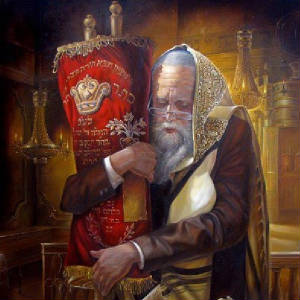[First posted in 2017.—Admin1[
——————
We had to think about how to title this post without offending the ‘sender’. Who?
The initials “RW” would be familiar to readers of ‘Discourse’, specifically the email exchanges between him (our former Christian-turned-Messianic pastor-bible-teacher) and individual Sinaites (namely VAN, BAN, and NSB).
He titled his email: “To help you understand”. Understand what? Ah, the attached file which is posted at the end of this commentary, titled: Love and the Law – Jewish Commentary . (Click the article and it will bring you to the website that originally published it and many more articles).
The article was puzzling to us. ‘RW’ to whom we first confessed our individual and collective decision to leave Christianity —to “help him understand” —had branded us “apostates” among other denigrating labels and rightly so, he’s simply using the term applicable to the likes of us, used by the real founder of Christianity, Paul of Tarsus.
So what’s so puzzling? The very choice of the name we decided to call our movement well indicates what we had understood way back in 2010, when we veered off from the Christian path to join Torah-observant Israel on the pathway toward Spiritual Sinai, the symbolic site of the Self-revelation of the One True God Who revealed His Name as YHWH, and prescribed His Way of Life. Not coincidentally, that biblical historical event is about to be commemorated by Torah-observant Jewry on the commanded feast of Shavuot, the giving of the Law—May 30-June 1, 2017.
As we have repeatedly explained in many articles since 2010, the Torah life is what we now live, in obedience to YHWH, the God we now worship and embrace as our LORD.
In our view, Torah is all about law and grace! The Law-Giver by His Grace, did not leave humanity ignorant of what He requires from those who agree to live under His Kingship. He gave instructions, precepts, commandments, etc. to regulate human relationships in all social contexts — family, friendship, work, society, nations, etc. And when there is not one other human being to relate to, Torah contains as well, regulations relating to ‘tending the garden’, taking care of the one planet designed to nurture and sustain life in all forms, but particularly human life. With no other human around, there are instructions on how to respect, regard, and replenish nature, including what to eat, how to live hygienically, etc. The Designer of the human body left a manual for living, for the one and only creature made in His Image, endowed with the gift of free will to obey His Law which promises blessing, or disobey, the consequence of which is warned as ‘curse’.
Please understand: Living by God’s ‘Grace’ is living according to the Law of God. Law IS Grace! He has never abrogated his Torah, at least not in the original Hebrew Scriptures. His Torah is NOT impossible to obey, even if the NT apostle Paul claims so (might have been difficult for him?); and obedience to His Torah is not legalism, even if Christianity labels it so. We have many posts explaining this but for now, this post is specifically about . . . well . . . read the title again!
‘RW’ typifies the Christian reaction to Sinai 6000, namely —
- first, genuine concern for our eternal destination, damnation in hell predicted for all unbelievers or worse, apostates;
- second, debate with us why we’re wrong;
- third, warn others about us;
- and finally, if at all possible, get us back to returning to salvation through belief in and acceptance of the Jesus Christ,
- part of which means believing the Christian gospel that we are under “grace” and not “law”.
Groan.
Now, get to know ‘RW’ in the posts below; the listing is random, not chronological:
- Revisit: Discourse: Sinaite/Messianic circa May 2011
- Revisit: Discourse between Sinaites & Messianic Pastor
- Discourse: Messianic/Sinaite – “On earth as it is in heaven?” — Postscript
- Discourse: S6K/Messianic – The Lamb of God – 2
- Discourse: Messianic ‘RW’/Sinaite ‘VAN’
- Discourse: S6K/Messianic – 5
- Discourse: Sinaite/Messianic – [VAN/RW] = 2 – “Yeshua is not in the TNK”
- Discourse: Sinaite/Messianic – [VAN/RW] = 2 – “Yeshua is not in the TNK”
- Discourse: S6K/Messianic – 3 – Before the “Apostasy”
- Discourse: Sinaite/Messianic [VAN/RW] Yeshua in Tanakh . . .?
- Discourse: S6K/Messianic – The Last Word by VAN@S6K
- Discourse: S6K/Messianic — Sacrificial System in TNK
If you managed to get this far, for the article that’s supposed to ‘help’ us ‘understand’ . . . . here it is. There is a wonderful prayer at the end of our post to make your effort/patience/perseverance all worthwhile, don’t miss it!
————————
Love and the Law – Jewish Commentary

I saw in the lives of those Jewish students the incredible durability of God’s promises and God’s Word. Despite centuries of persecution, exile, dispersion, and even apostasy, the Jewish people continue to exist because their covenant with God is alive and permanent. God’s Word is the organizing principle of their identity. It’s the foundation and glue of their relationship with one another, with their past, and with their future. And the more faithful they are to God’s Word, the more certain they can be of their survival.
Blessed are You
YHWH, our God,
King of the universe,
Who gives us
the Torah of Truth
so that we may study,
live, learn,
and be changed by it,
so that we may have righteous judgment
and Your spirit of love,
so that we may keep Your commandments,
do them, and live in them,
and teach them to our children
and our children’s children forever.
Amain!





